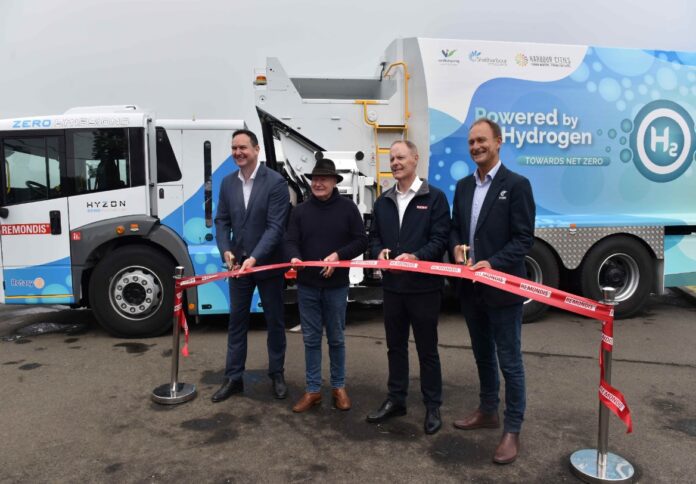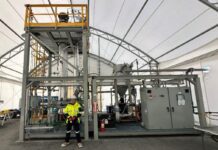
Waste management company REMONDIS Australia has introduced one of the world’s first hydrogen-powered waste collection trucks, making it a global pioneer in sustainable waste management.
Following extensive trials, this carbon emission-free truck made its debut during a scheduled residential waste collection in the Illawarra region of New South Wales today.
The Fuel Cell Electric Vehicle (FCEV) relies on hydrogen, which, when combined with air, generates electricity to power the vehicle.
Notably, the only emission from this process is water vapour, ensuring an environmentally friendly operation.
Björn Becker, CEO of REMONDIS Australia, described this moment as a turning point, highlighting that they are showcasing the feasibility of emissions-free transportation within industrial environments.
“We’re hopeful that this is the start of a bigger journey whereby companies around the world follow REMONDIS’ lead and turn to fleet decarbonisation,” he noted.
Becker also emphasised the importance of economies of scale that can make such technology a norm rather than an exception.
He underscored REMONDIS’ commitment to delivering this groundbreaking environmental initiative as early as possible.
Chris Wade, REMONDIS NSW South Coast Region Manager, explained that the truck would undergo further refinements in collaboration with its manufacturer, Hyzon Motors, in the coming months.
The ultimate goal is for the hydrogen truck to match the performance of the company’s existing diesel trucks, including completing approximately 1,000 bin lifts over an eight-hour shift.
“Trial runs in recent months have been promising, giving us confidence to put the truck into formal operation, serving many of the 300,000 residents in the region,” Wade remarked.
The recent launch of the Coregas H2 station in Port Kembla, Australia’s first hydrogen refuelling station for heavy vehicles, played a crucial role in enabling the truck to commence operations, REMONDIS said.
The hydrogen-powered truck is expected to be refuelled daily, with each refuelling stop taking around 15 minutes.
Extensive trials have shown that the truck can travel approximately 200 kilometres, allowing it to complete full waste collection runs without refuelling, comparable to conventional diesel trucks.
This transition to hydrogen power is set to save 25,000 litres of diesel fuel annually, equivalent to the consumption of a conventional diesel-powered waste collection truck of this size.
Furthermore, this change will eliminate up to 75 tonnes of carbon emissions each year, contributing significantly to reducing greenhouse gas emissions.
Hyzon Motors, in collaboration with Superior Pak, one of Australia’s leading manufacturers of mobile waste collection and compaction equipment, developed this innovative vehicle to ensure it meets the unique operational needs of the resource recovery industry.
John Edgley, President of International Operations at Hyzon Motors, emphasised the global impact of this development.
“Today’s announcement is a ‘real game changer’ for the world’s decarbonization journey,” said Edgley.
He highlighted the readiness of the locally designed product to enter the market and expressed hope that this achievement would inspire the transition to larger fleets in companies with thousands of vehicles.



















